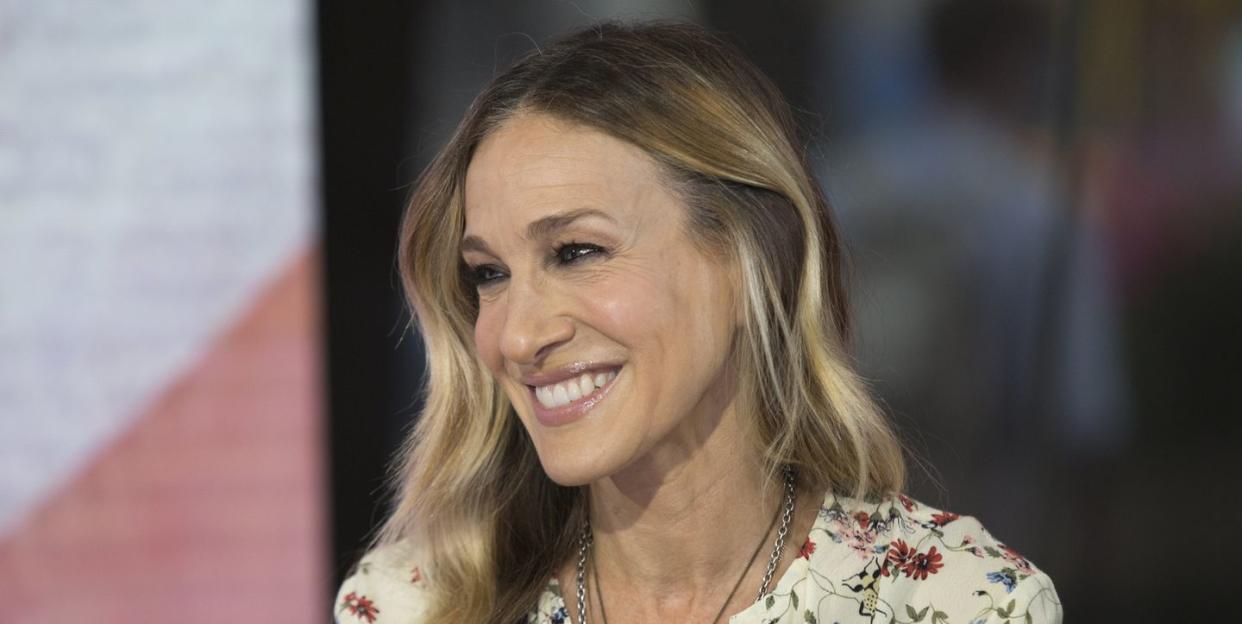Sarah Jessica Parker on Why Everyone Should Read the New Book Golden Child

In 2016, Sarah Jessica Parker became editorial director of the newly launched SJP for Hogarth, a literary imprint of Crown Publishing. Her first acquisition, A Place for Us, by Fatima Farheen Mirza, was a debut novel about an Indian family in America striving to adjust to their new country; it went on to become a New York Times best-seller.
Her second pick, Golden Child, by Claire Adam, is also a first novel. It has the palpable tension of a thriller but abounds with sociopolitical themes: In a Trinidad rife with corruption and crime, a son’s kidnapping forces his father to choose between his two children; the tale highlights the brutally unwinnable situations many would-be immigrants face.
O’s books editor, Leigh Haber, asked Parker-who is also honorary chair of the American Library Association’s Book Club Central, for which she regularly designates books to share with readers across the country-what draws her to a story and why she decided to lend her name to this new endeavor.
Where did your passion for reading come from?
My mother is the reason all of her eight children are readers. She used to drive us everywhere with either a book or the New Yorker opened in her lap. At red lights, she would look down and read. We’d poke her on the shoulder when the light turned green. She spent her life taking us to ballet classes, violin and piano lessons-everywhere. I’m pretty sure the reason she didn’t lose her mind was that all that going here and there afforded her time to read. Now that I’m a mother, I understand completely.
Do you do the same?
Absolutely. I get to Brownie pickup early so I can read while I’m waiting for my girls. I purposely take the subway to bury my head in a book. On movie and television sets, I’m never without a book, so when I’m in hair and makeup or between takes, I can read. Sometimes people get offended because they think I’m being antisocial, but it’s actually a way for me to stay focused.
I heard that when Molly Stern, the publisher of Hogarth, first suggested you create a book imprint, you thought, Oh, I’m not qualified. Why did you change your mind?
I’d already joined a book club with some writers and publishing people in part so I could read forthcoming titles early and then support them any way I could-by posting on Instagram and Twitter, just talking them up, or letting paparazzi take a picture of me carrying a certain book. The first thing we read together was Anthony Marra’s A Constellation of Vital Phenomena, which I fell madly in love with. The whole purpose of the club was to help great books get a leg up, and the experience was wonderful. Then, three years in, Molly suggested I could have an even bigger impact by handpicking a list of books and working on them from start to finish.
Agents send you tons of submissions. Why did you choose Golden Child from the piles?
Right away I was utterly absorbed. I was concerned for the characters-I felt loving toward them. I couldn’t stop thinking about the father’s dilemma, the challenges he was facing, and how hard it is to be a good parent, especially when the economics are so tough and you’re faced with life-or-death choices that no one, especially a parent, should have to make.
Those characters got to you.
Yes. Their lives are obviously so different from mine, yet I deeply related to what they were going through, and I wanted contentment, satisfaction, peace for them. Their pain was mine, which meant the author had done something pretty remarkable.
The desperation they feel to give their children a better life is visceral, and offers the reader a deeper understanding of, say, why someone from Trinidad might do just about anything to come to the United States.
And the beauty of it is that Golden Child isn’t a political book. It doesn’t address policy issues. But you feel that, yes, in some ways this family is as stuck as someone in a jail cell.
We may travel to islands in the Caribbean as tourists, but we don’t know what’s really happening there.
It made me ashamed, frankly. Yes, the novel’s set on a beautiful, sunny island, but it’s also a real place with people struggling in ways we wouldn’t be able to imagine absent the book.
One of your goals in finding new literary voices is to help foster an understanding about the larger world-in other words, empathy.
I truly believe that reading accomplishes this as nothing else can. There’s a solitude to it, and in that sense it’s very different from watching a film or a play. Good books transport you. Of course, you can never be somebody else-have their DNA, live their story. But you can get close. Great reads can bring you to care about the protagonists nearly as much as you do your own loved ones.
It makes them real.
Often I finish a book and think, I want more from Lagos. I want to know everything about Nairobi. A whole new world opens up to you. Reading is cumulative. It changes you and sustains you. That experience is what I hope to share.
For more ways to live your best life plus all things Oprah, sign up for our newsletter!

